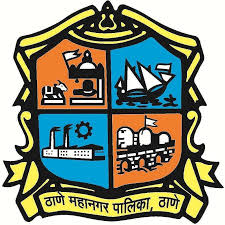Treated Used Water Reuse Plan for Thane City

Problem identification
Water security is
crucial for the sustainable growth and resilience of economies. Managing
freshwater demand should be India’s foremost priority in achieving water
security, considering that 11 out of the 15 major river basins in the country
will be water-stressed by 2025 (Bassi, Gupta, and Chaturvedi 2023). The
situation is particularly severe in urban areas where scarce freshwater
resources are unable to keep up with the growing water demand. Given the
quantum of domestic used water generated in Indian cities, once safely treated
and reused, it can serve as a highly valuable resource that can reduce the
pressure on freshwater resources and improve the quality of rivers and
aquifers. However, only 30 per cent of the domestic used water generated by
Class I and II cities (population above 50,000) is treated (CPCB 2021). The remaining water is discharged
into freshwater bodies such as rivers and lakes (Bassi, Gupta, and Chaturvedi 2023). This
significantly contributes to water body pollution in India, especially in the
stretches passing through urban areas.
Need for the solution
Although many Indian cities are implementing treated used water
(TUW) reuse projects, the level of reuse is still very low overall, even in
metropolitan cities. Out of the 503 urban local bodies (ULBs) assessed by a
CEEW study, 414 do not reuse their TUW. Thane City is currently reusing 5 per
cent of its TUW (Gupta et al. 2024). Being the paramount
authorities responsible for domestic used water management, ULBs need to be
empowered to formulate and adopt long-term reuse plans – with clear targets for
used water treatment and reuse – an element currently missing in Indian cities.
Importance of the TUW Reuse Plan
The TUW Reuse Plan
for Thane City was developed by CEEW in association with the Thane Municipal
Corporation (TMC). This first-of-its-kind plan aims to maximise the safe reuse
of TUW, enabling a circular economy approach to used water management in TMC. It
promotes TUW reuse for non-potable purposes and establishes reuse – specific
quality standards to ensure its reusability. This will reduce the city’s
dependence on existing freshwater resources for non-potable purposes, optimise
resource efficiency, and improve the water quality of local water sources in
Thane City.
The Reuse Plan sets quantifiable targets for 2035 and 2046 for
enhancing treatment capacity utilisation, upgrading existing treatment
infrastructure – mainly treatment technologies – , and maximising the safe
reuse of TUW for Thane City. Also, it proposes viable business models to scale
up the reuse of water in different sewage zones in the city. Local authorities must align their efforts
and resources towards achieving these time-bound benchmarks. For the development
of the plan, over 20 consultations were conducted with TMC officials (Figure
2a–e).
Figure
2a–e: Consultation workshops and meetings with TMC officials
a)
CEEW team
presenting the reuse plan to the Municipal commissioner of TMC
b)
Consultation
with various line departments within TMC
c)
CEEW team
briefing TMC officials about the training and assistance needs assessment
exercise
d)
CEEW team visiting the Kopri STP for consultations with
engineers
e) CEEW team presenting the TUW Reuse Plan (Draft) to the TMC Commissioner for review and feedback



Comments 0 Like 0 Dislike 0